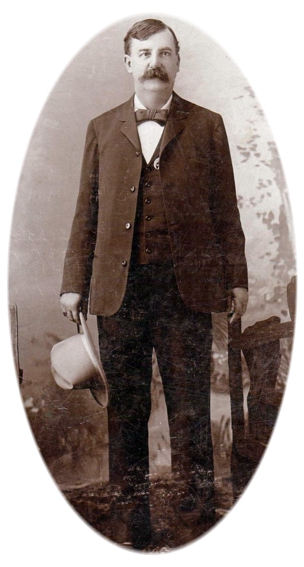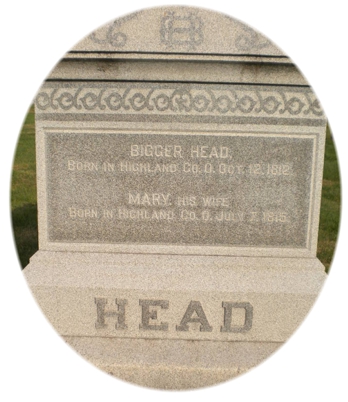by Sharon Hall | Apr 4, 2014 | Surname Saturday
Coffin This family can trace its roots back to Sir Richard Coffin, a knight who was with William the Conqueror when he went to England in 1066. Many historians agree that the surname is derived from the French word “cofin” or “coffin”, which was derived from the...

by Sharon Hall | Apr 2, 2014 | Digging History Magazine, Wild West Wednesday
One of the West’s most effective lawmen, Henry Andrew “Heck” Thomas, was born on January 3, 1850 in Athens, Georgia to parents Lovick and Martha Thomas. When the Civil War broke out, Heck’s father and two of his uncles joined the Confederate Army. Heck was twelve...

by Sharon Hall | Apr 1, 2014 | Tombstone Tuesday
Bigger Head was born in Highland County, Ohio on October 12, 1812 to parents William and Mary (Elder) Head. According to the Head family genealogy, William and Mary were cousins and together they had fourteen children, with ten of them living to adulthood. Bigger...
by Sharon Hall | Mar 29, 2014 | Surname Saturday
Doe The Doe surname is believed to have been of ancient Norman origins, presumably arriving in England as a result of the Norman Conquest of 1066. One family historian hypothesized that the surname was perhaps of Danish origin since the Danes frequently made...
by Sharon Hall | Mar 28, 2014 | Feudin' & Fightin' Friday
A town’s designation as the county seat often determined whether it would thrive or fade away into history. Some county seat disputes turned into outright wars, bloodshed and all. Others, although politically charged and volatile, were more amicably (or sneakily)...

